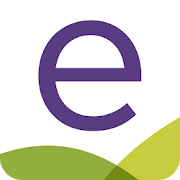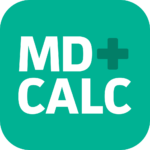The next time you go for a medical checkup, don’t be surprised if you see your doctor pull out her smartphone. No, she’s not texting or checking her e-mail; she’s likely consulting one of the growing number of apps that are specially designed to help medical professionals better serve their patients. Fulfilling a different purpose than health apps for the general public—which are all about helping individual users manage their overall health and medical conditions—the health apps that are geared toward doctors and nurses focus on helping these medical professionals make more informed clinical decisions, improve their diagnostic accuracy, and enhance their efficiency in dealing with patients. Some of the most popular apps that today’s doctors are using include:
Epocrates
 Epocrates was one of the earliest medical apps to hit the market, and it remains one of the most popular and widely recommended: the app has been downloaded millions of times, and an estimated 50% of all physicians in the US use it. Epocrates assists doctors with a wide variety of tasks—such as quickly calculating patient measurements like BMI and identifying other providers for consults or referrals—but one of its most important features is its extensive drug database that doctors can consult when prescribing medications. The database can be searched by generic name, brand name, or by other specific conditions, and it provides essential information on drug prescribing and safety, including details on how the drug may interact with other medications and follow-up best practices after the drug is prescribed.
Epocrates was one of the earliest medical apps to hit the market, and it remains one of the most popular and widely recommended: the app has been downloaded millions of times, and an estimated 50% of all physicians in the US use it. Epocrates assists doctors with a wide variety of tasks—such as quickly calculating patient measurements like BMI and identifying other providers for consults or referrals—but one of its most important features is its extensive drug database that doctors can consult when prescribing medications. The database can be searched by generic name, brand name, or by other specific conditions, and it provides essential information on drug prescribing and safety, including details on how the drug may interact with other medications and follow-up best practices after the drug is prescribed.
UpToDate
 Another very popular medical reference app with hundreds of thousands of downloads, UpToDate is essentially a giant database of medical data and evidence-based clinical information that helps physicians answer pressing clinical questions. The app includes thousands of searchable topics that are frequently discussed and updated by experts, and more than 10,000 medical graphics, including illustrations. Physicians can also use UpToDate to learn about anticipated changes to medical practice, and to receive alerts about current medical news.
Another very popular medical reference app with hundreds of thousands of downloads, UpToDate is essentially a giant database of medical data and evidence-based clinical information that helps physicians answer pressing clinical questions. The app includes thousands of searchable topics that are frequently discussed and updated by experts, and more than 10,000 medical graphics, including illustrations. Physicians can also use UpToDate to learn about anticipated changes to medical practice, and to receive alerts about current medical news.
PEPID
 This clinical decision support and reference app is targeted toward emergency room physicians, but it’s useful for almost any health or medical professional. The premise of PEPID is simple: doctors can input patient symptoms, lab results, and other relevant details, and the app will help determine the best diagnosis for the patient. In addition, physicians can use the app to browse profiles of a huge range of diseases, medical conditions, and treatment options, and to watch hundreds of reference videos for different clinical procedures and physical examinations. PEPID’s content is based on research from the American College of Emergency Physicians, the American Academy of Emergency Medicine, and the Family Physicians Inquiries Network.
This clinical decision support and reference app is targeted toward emergency room physicians, but it’s useful for almost any health or medical professional. The premise of PEPID is simple: doctors can input patient symptoms, lab results, and other relevant details, and the app will help determine the best diagnosis for the patient. In addition, physicians can use the app to browse profiles of a huge range of diseases, medical conditions, and treatment options, and to watch hundreds of reference videos for different clinical procedures and physical examinations. PEPID’s content is based on research from the American College of Emergency Physicians, the American Academy of Emergency Medicine, and the Family Physicians Inquiries Network.
Medscape
 As one might expect from an app created by WebMD, Medscape is designed to help health care professionals keep up with the latest medical news stories and get access to the most current health information. Doctors can browse news articles and reports from more than 30 different health fields, and access a select group of MEDLINE’s best journals. In addition to its medical news focus, Medscape offers similar functionality to the apps described above: it features a searchable database of medical conditions, physician and pharmacy directories, dosing calculators, and drug interaction reference tools.
As one might expect from an app created by WebMD, Medscape is designed to help health care professionals keep up with the latest medical news stories and get access to the most current health information. Doctors can browse news articles and reports from more than 30 different health fields, and access a select group of MEDLINE’s best journals. In addition to its medical news focus, Medscape offers similar functionality to the apps described above: it features a searchable database of medical conditions, physician and pharmacy directories, dosing calculators, and drug interaction reference tools.
Figure 1
 It can often be helpful for physicians to have a second opinion when they’re dealing with an unfamiliar clinical issue, but it’s not always easy to know where that second opinion should come from or how to obtain it. This is where Figure 1 comes in. A cross between a visual database and a social networking platform, Figure 1 allows users (who are exclusively health care professionals) to share, comment on, and search through medical images. The app is an excellent tool for doctors who are looking for feedback on a particular case, or who simply want to see examples and learn more about rare or textbook cases. Patient privacy is guaranteed with automatic face-blocking and elimination of identifying information, and all photo-sharing is HIPAA-compliant.
It can often be helpful for physicians to have a second opinion when they’re dealing with an unfamiliar clinical issue, but it’s not always easy to know where that second opinion should come from or how to obtain it. This is where Figure 1 comes in. A cross between a visual database and a social networking platform, Figure 1 allows users (who are exclusively health care professionals) to share, comment on, and search through medical images. The app is an excellent tool for doctors who are looking for feedback on a particular case, or who simply want to see examples and learn more about rare or textbook cases. Patient privacy is guaranteed with automatic face-blocking and elimination of identifying information, and all photo-sharing is HIPAA-compliant.
Case
 A medical journal app geared toward physicians and researchers, Case functions a bit like Netflix: powered by a sophisticated machine learning algorithm and drawing from its extensive database of medical journals, the app makes personalized recommendations of articles based on a user’s previous reading habits. Doctors can also choose from more than 100,000 keywords to follow in order to narrow down their reading options: for example, an oncologist might not want to follow every single cancer journal available, but only those dealing with AML cancer, or a particular protein or gene associated with AML cancer. At present, Case supports 81 different medical specialties.
A medical journal app geared toward physicians and researchers, Case functions a bit like Netflix: powered by a sophisticated machine learning algorithm and drawing from its extensive database of medical journals, the app makes personalized recommendations of articles based on a user’s previous reading habits. Doctors can also choose from more than 100,000 keywords to follow in order to narrow down their reading options: for example, an oncologist might not want to follow every single cancer journal available, but only those dealing with AML cancer, or a particular protein or gene associated with AML cancer. At present, Case supports 81 different medical specialties.
MDCalc
 MDCalc is a highly rated and widely consulted resource for doctors who need support in dealing with a specific case. Based around the principle of helping practicing physicians learn and apply evidence-based medicine, the app offers more than 350 decision tools relevant to particular patient care scenarios. These tools cover more than 150 disease states in 35 different areas of specialization.
MDCalc is a highly rated and widely consulted resource for doctors who need support in dealing with a specific case. Based around the principle of helping practicing physicians learn and apply evidence-based medicine, the app offers more than 350 decision tools relevant to particular patient care scenarios. These tools cover more than 150 disease states in 35 different areas of specialization.

